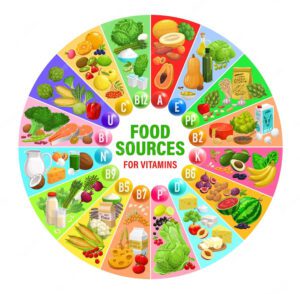Candida Dieetti – Are you experiencing chronic fatigue, mood swings, and digestive issues? If so, you might suffer from a yeast overgrowth known as candida. Fortunately, there’s hope! Following a candida diet plan can eliminate the fungus and regain your health. In this post, we’ll guide you through the basics of the candida diet – from understanding what it is to identify which foods to eat and avoid. Get ready to transform your health with the ultimate guide to candida dietetic 101!
What is Candida and How Does it Affect the Body?
Candida is a fungus that most often affects the intestines. It can also grow in other body parts, such as the vagina, mouth, and skin. Candida can cause problems with your immune system, including infections and inflammation. Candida can also affect your digestion and absorption of nutrients from food. Symptoms of candida overgrowth include diarrhea, constipation, headaches, fatigue, anxiety, and difficulty sleeping. There is no one-size-fits-all treatment for candida overgrowth; Treatment depends on the individual’s symptoms and history. Some people may need antibiotics to clear their infection, while others may need supplements or lifestyle changes to improve their digestion.
Symptoms of Candida Overgrowth and How to Identify Them
Candida overgrowth is a condition with an increase in the number of Candida albicans cells in the body. This can cause symptoms such as bloating, abdominal pain, fatigue, and irritation. There are several ways to identify if you have Candida overgrowth, but the easiest way is to take a candida test. If you have any of these symptoms, it’s best to see a doctor who can treat you.

Foods to Avoid and Include in a Candida Diet
Many foods can be eaten on a Candida diet. It is essential to understand that not all foods are good for your gut and body. To help with identifying which foods are best avoided, here is a list of foods to avoid and include in a Candida diet:
Foods to Avoid:
-Refined sugars and processed Foods
-Grains, especially wheat, corn, and rice
-Caffeine
-Gluten
-Dairy products (milk, cheese, yogurt)
-Fruits (except for berries)
Foods to Include:
Raw or lightly cooked vegetables (broccoli, cauliflower, Brussels sprouts, asparagus), unrefined carbohydrates such as sweet potatoes or quinoa, and healthy fats such as avocado or virgin olive oil.
Supplements and Natural Remedies to Support Candida Treatment
Candida dieetti is a natural way to manage Candida overgrowth. Many supplements and remedies can support Candida dieetti, but it is essential to remember that not all supplements will work for everyone. Talking to a healthcare professional before taking supplements or remedies is a good starting point. Some common Candida dieetti supplements include probiotics, dark leafy greens, and garlic. Another helpful natural remedy is grapefruit seed extract.
Tips for Following a Candida Diet and Maintaining a Healthy Gut Flora.
When starting a Candida diet, it is important to understand the basics. A healthy gut flora can help fight against candida overgrowth and improve overall health. Here are some tips for following a Candida diet and maintaining a healthy gut flora:
• Eat a balanced and varied diet. Ensure that plenty of fresh fruits and vegetables, whole grains, and low-fat proteins are included. Avoid high-carbohydrate foods, processed foods, refined sugars, and unhealthy fats.
• Drink plenty of water throughout the day. This is especially important on a Candida diet because candida thrives in an acidic environment.
• Take probiotics daily. Probiotics help support healthy gut flora by aiding food digestion and boosting the immune system. Look for supplements that contain beneficial strains of bacteria, such as Lactobacillus acidophilus or Bifidobacterium bifidum.
• Use natural remedies to support gut health. Some helpful herbs include dandelion root tea, garlic, ginger, apple cider vinegar, olive oil extract, chamomile tea, lavender oil capsules or tincture (helpful for sleeping), turmeric extract (for inflammation), bee pollen (for general well-being), slippery elm powder (for anti-inflammatory purposes).


